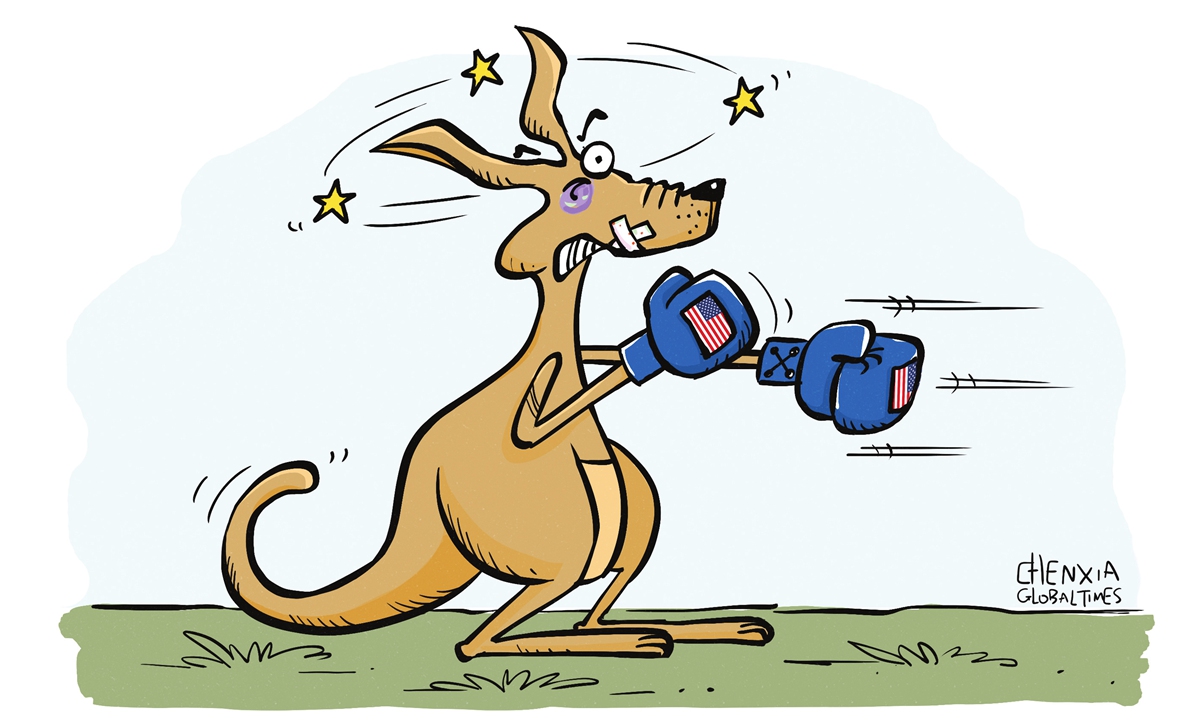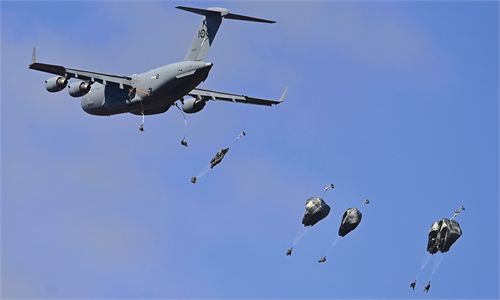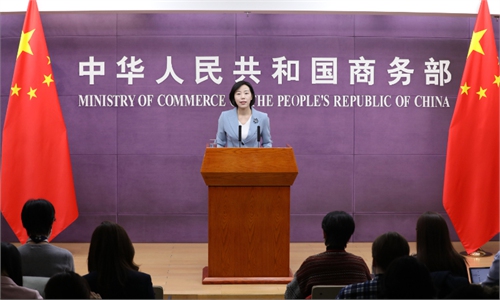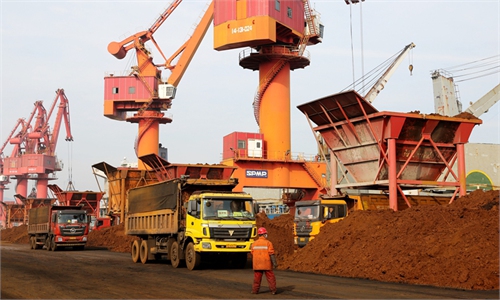Australia will gain nothing if engaging as a proxy for the US in war against China

Illustration: Chen Xia/Global Times
The lesson that is clearly demonstrated by the Russia-Ukraine conflict is that the US is prepared to sacrifice a so-called ally in pursuit of its own interests, and its interests in Europe were twofold.One was overtly stated before the Ukraine war started. A White House briefing clearly stated that "the US in concert with its European allies will weaken Russia to the point where it can have no influence on the international stage."
That was its first objective in provoking the war. It began that process with the overthrow of the elected government in Ukraine and the establishment of a pro-US government in 2014. From that time, through NATO, the US significantly armed and developed a military capability in Ukraine that would enable it to fight Russia for a considerable length of time, no matter what the huge losses Ukraine would suffer.
The prime directive of the US is to maintain its supremacy. It allows no other power to challenge its position as No.1 in the world. Flowing from such a goal, the second aim has been to weaken Europe, to break the connection between the energy and mineral resources from Russia and the industrial powerhouses of Western Europe, which we have seen Washington successfully do. Europe is now virtually completely cut off from any of the resources from Russia and dependent particularly for energy resources on the US - at a vastly increased expense to European budgets and the European people.
So Europe is now militarily firmly under US control which has increased its physical military presence in Europe considerably, particularly in Poland, while the continent has been significantly weakened economically and financially. The IMF has released figures very recently showing that Britain's GDP had contracted last year. That is, it slipped backward, whereas Russia's GDP actually grew, because Russia had learned how to live under the sanctions before the war started.
Once the Ukraine war started and energy supplies to Europe were cut off - therefore, income from Europe was cut off, Russia turned to the markets in the Global South. So the whole process that the US has used in Ukraine has, in fact, not effectively weakened Russia in the way that the US expected. Instead, it has very effectively weakened Ukraine to the point of driving it into almost nonexistence.
But at the same time, it has created enormous opportunities for major US corporations, which Volodymyr Zelensky has said will be engaged in the reconstruction of Ukraine once the war stops, which eventually it will. Ukraine would still exist as a separate entity, and American corporations like BlackRock and so on would come in and privatize Ukraine's industries and rebuild Ukraine's cities. The government in Ukraine would likely curtail the rights of workers and not allow the formation of unions or give workers any capacity to actually negotiate the terms and conditions of their employment in order to enable these American corporations to maximize the profits that they would make.
What we can learn from Ukraine is that Australia would gain absolutely nothing from engaging as a proxy for the US in a war against China. China's military capability in comparison to Australia's is overwhelming. The US military capability is still overwhelmingly greater than China's. China has developed a sufficient military capability to defend itself against the US and prevent it from ever succeeding in conquering China. But losses on both sides would be absolutely catastrophic, both for the US and China and indeed for the rest of the world.
An article I read recently said that war between the world's two leading economies would completely destroy the global capitalist structure. So if the US aims to maintain its control over the global capitalist structure, it would not, in fact, be in American interests to provoke a war between itself and China. It is only in the US interest to get China involved in a war in which the US is not itself engaged. And that's where Australia comes in.
The article was compiled by Global Times reporter Wang Wenwen based on an interview with former Australian diplomat John Lander. opinion@globaltimes.com.cn



